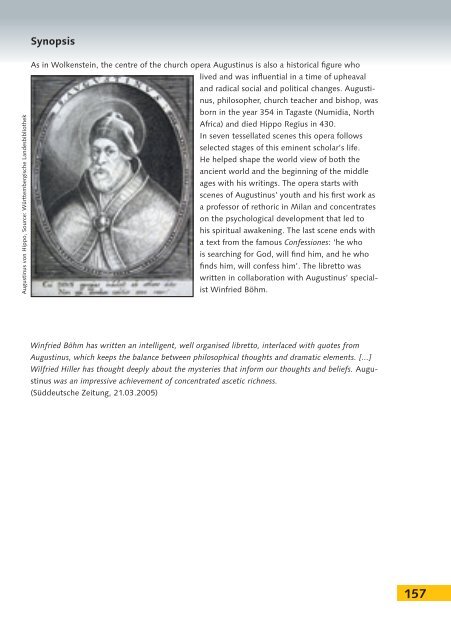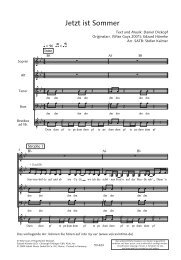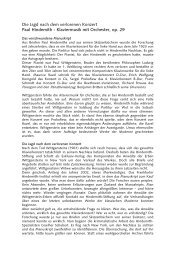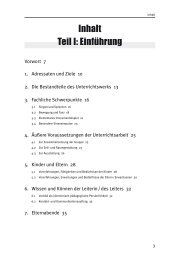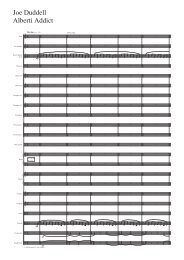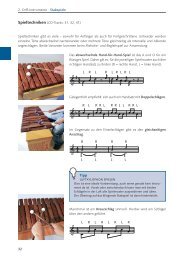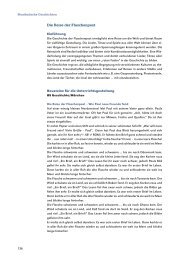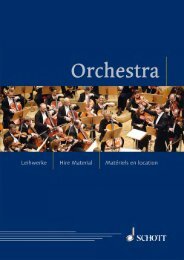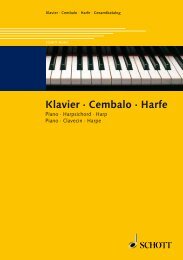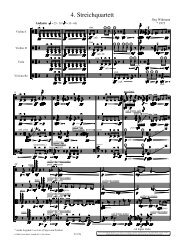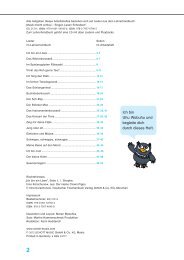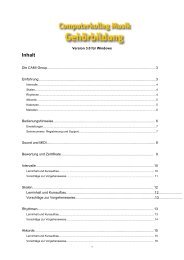Music Theatre since 1990 - Schott Music
Music Theatre since 1990 - Schott Music
Music Theatre since 1990 - Schott Music
You also want an ePaper? Increase the reach of your titles
YUMPU automatically turns print PDFs into web optimized ePapers that Google loves.
Synopsis<br />
Augustinus von Hippo, Source: Württembergische Landesbibliothek<br />
As in Wolkenstein, the centre of the church opera Augustinus is also a historical figure who<br />
lived and was influential in a time of upheaval<br />
and radical social and political changes. Augustinus,<br />
philosopher, church teacher and bishop, was<br />
born in the year 354 in Tagaste (Numidia, North<br />
Africa) and died Hippo Regius in 430.<br />
In seven tessellated scenes this opera follows<br />
selected stages of this eminent scholar’s life.<br />
He helped shape the world view of both the<br />
ancient world and the beginning of the middle<br />
ages with his writings. The opera starts with<br />
scenes of Augustinus’ youth and his first work as<br />
a professor of rethoric in Milan and concentrates<br />
on the psychological development that led to<br />
his spiritual awakening. The last scene ends with<br />
a text from the famous Confessiones: ‘he who<br />
is searching for God, will find him, and he who<br />
finds him, will confess him’. The libretto was<br />
written in collaboration with Augustinus’ specialist<br />
Winfried Böhm.<br />
Winfried Böhm has written an intelligent, well organised libretto, interlaced with quotes from<br />
Augustinus, which keeps the balance between philosophical thoughts and dramatic elements. [...]<br />
Wilfried Hiller has thought deeply about the mysteries that inform our thoughts and beliefs. Augustinus<br />
was an impressive achievement of concentrated ascetic richness.<br />
(Süddeutsche Zeitung, 21.03.2005)<br />
157


